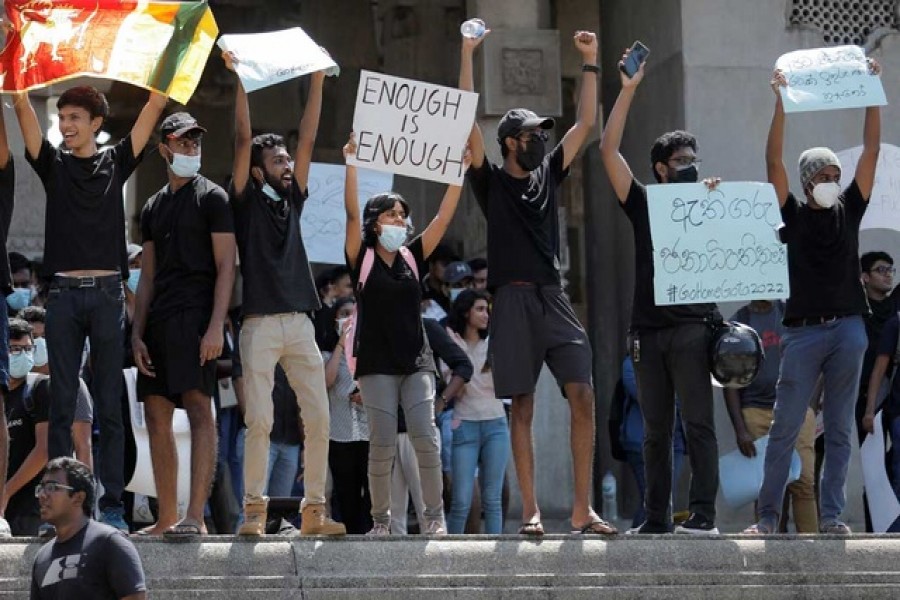Sri Lanka must look at restructuring a $1 billion sovereign debt due for payment in July, the outgoing finance minister told parliament on Thursday, urging an end to calls for a change in government amid the country's worst economic crisis in decades.
The opposition and some partners of the ruling coalition rejected calls this week for a unity government from President Gotabaya Rajapaksa after he disbanded his cabinet, in the hope of quelling weeks-long street protests over shortages of fuel, power, food and medicine.
With its foreign exchange reserves shrinking quickly, massive debt payments due and the rupee currency slumping, analysts say the government is running out of options.
"We must look at how to structure the $1 billion international sovereign bond payment maturing in July. We must go to the IMF, there is no other solution that I can see," said Ali Sabry, who sent his resignation to Rajapaksa on Tuesday, a day after he was moved to finance from the justice ministry.
It was not immediately clear if the president had accepted his resignation, which was submitted just days ahead of scheduled talks with the International Monetary Fund for emergency loans.
"We must have political stability to find solutions to the financial crisis," Sabry said.
"We must discuss with the World Bank and we must have a bridge-financing plan with the ADB. If we don’t have stability, who will conduct these talks?," he said, referring to the Philippines-based Asian Development Bank.
Opposition lawmakers, however, continued to call for the president to step down.
Critics have accused the government of mismanagement, but the economy has also been hit by drought and a sharp drop in tourism due to the COVID-19 pandemic.
Help from the IMF would also likely come with some tough political choices -- policy reforms that could add to the pain in the short-term in hopes of getting the economy back on more solid footing in a few years.
JP Morgan analysts estimated this week that Sri Lanka's gross debt servicing would amount to $7 billion this year, with the current account deficit coming in at around $3 billion. As of February, the country had only $2.31 billion in reserves.
Reuters reported on Wednesday that asset managers Blackrock Inc and Ashmore Group Plc were among the top holders of Sri Lanka's international bonds that form part of a creditor group as markets prepare for a potential debt restructuring - which would be a first for the island nation.
MONETARY POLICY
As the search for a replacement for Sabry continues, a new central bank governor was set to take over on Thursday in place of Ajith Nivard Cabraal, who quit on Monday.
P Nandalal Weerasinghe, a former senior deputy governor of the Central Bank of Sri Lanka who has worked with the IMF, will hold a monetary policy meeting on Friday. It was originally supposed to be held on Monday.
An analyst said the central bank was expected to hike key interest rates by 300-400 basis points (bps) - following a 100 bps increase in early March - to tame inflation that hit 18.7 per cent in March.
"We also expect the newly appointed governor to outline potential measures to be included in the IMF reform plan, views on potential debt restructuring, and currency management," said Lakshini Fernando of Asia Securities, adding she also expected Weerasinghe to address the need for "higher stability and transparency" at the bank.
Protests over shortages of food, fuel, and other essentials have gone unabated in the country of 22 million people. Little money is left to pay for imports.
The Sri Lanka rupee currency's 40 per cent depreciation against the US dollar in one month has compounded problems.
The stock market .CSE, which is down a third this year, fell about 4.0 per cent on Thursday.


